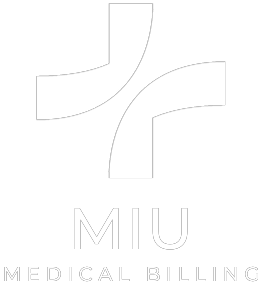Health care moves quickly, and fresh tech can change the way doctors treat patients and run their practices. One big change today is swapping that bulky on-site Ultimate software for nimble cloud systems. When a clinic sees many patients, has several caregivers, and juggles thick stacks of admin work, a quick, clear medical billing flow is what keeps it in the black.
Cloud billing works over the internet, letting staff pull up claims, payments, and money reports from almost any safe spot. Since the heavy data sits on remote servers rather than hardware tucked behind a front desk, many find it faster, cheaper, and tougher to break into. Here are ten reasons practices are choosing cloud-based billing over the old-school way.
Remote Access and Mobility

One of the best perks of a cloud billing system is how easy it is to access from the Web. Whether you are at the clinic, curled up at home, or even on vacation, you can jump onto the system with any computer that has Internet. That flexibility matters a lot for practices running several clinics or doing a lot of telemedicine. It also lets your admin team pitch in after hours or during a crisis, so billing and claims never miss a beat.
Billing and Claims Automation
Automation is like a dream if you wish to be in a position to bill in a more efficient way. The programs based on clouds tend to have their automated verification of the insurance of the patient, claims, payment handling, and error detection. That is one of the things to reduce manual data entry, and it is those kinds of things that minimize the errors, which can delay reimbursement. Workers who do not have to waste their time on such time-consuming administrative tasks will be able to dedicate more time to more strategic tasks, and patients should now enjoy a faster and more precise billing process.
Enhanced Security and Compliance for Data
Protecting information is very important in the field of health, and it’s not something you need to worry about, as the cloud-based billing programs are designed with data security. These reputable platforms also use HIPAA-compliant encryption, role-based user access, and audit trails to ensure that you keep sensitive patient and financial information secure. You are automatically taken care of patching security issues and updating computer programs, which means one less thing to worry about, whether your personal data is being protected or if you’re being punished for non-compliance.
Savings, Reduced Overheads
Thanks to cloud technology, clinics no longer have to invest in expensive hardware servers, proprietary licenses, or dedicated IT staff. And there, simply put, there ain’t no infrastructure up front (or maintenance). 99.9% of cloud billing is subscription or pay-as-you-go, which any business can plan on. This is particularly beneficial for smaller practices that need enterprise-level capability with minimal capital investment.
Scalability for Growing Practices
Your billing ability should grow in step with your clinic. These cloud-based billing systems are, by nature, scalable, enabling you to onboard new residents, providers, or locations with ease. You don’t have to buy new equipment or install different software; tweak your subscription. This flexibility guarantees that your billing solution grows as you grow, whether it be more patients, more specialties, or a wider variety of services.
Faster Setup and Easy Updates
Conventional on-site billing systems may take weeks and even months to be fully functional. Cloud platforms reverse that by being concerned with rapid deployments, so that clinics are not sitting idle. The majority of providers are currently taking a team through the process of onboarding within just days and allowing them to start billing instantly. The non-interfering deployments automatically wage continuous patching and switching of functions, enhancing compliance tools and security patches to augment their performance without a stop to their daily operations.
Interconnection with Other Healthcare Systems
A well-built cloud billing system is not a standalone system. It should play well with your EHR, PM, patient portals, and providers’ lab/pharmacy systems. This communication efficiency results in less duplicate data entry, and the likelihood of billing errors or mismatched data is minimized. When clinical and financial systems are aligned, it enables a more effective workflow and reduces interruptions or poor communications with patients concerning their bills.
Real-Time Reporting and Analytics
You just can not manage a clinic well without the knowledge of where the money is, and they have to be new answers. The cloud billing platforms are provided with custom dashboards, which provide important numbers, such as accounts receivable trend, the way various payers act, the pace of reimbursements, and the causes leading to claim denials. Through such an understanding, practices can optimise revenue-cycle work, react swiftly to surprises, and identify minor issues before they can escalate. And, when you might need them to report during team meetings, budget discussions, or audits that an outside party may conduct, it is simple to print out complete-length reports.
Enhanced Patient Experience
Billing is among the top reasons patients complain. Cloud-based solutions allow for the provision of a transparent and convenient billing experience to clinics. Patients can see their statements online, integrate with secure digital portals, receive automated payment reminders, and pay bills. This decreases misunderstandings and billing disagreements, and we want to give you options for how and when you can pay. The more patients we keep happy and their bills accurate, the better off we are as a practice.
Disaster Recovery and Business Continuity

What happens when a storm floods the office, the power grid fails, or hackers break in? Thankfully, you don’t need to drop everything and declare a total shutdown when trouble strikes. CLOUD BILLING SOFTWARE AUTOMATED BACK-UPS. When disaster strikes, the cloud-based billing systems automatically back up your data in multiple secure locations, so that you can quickly be back in business.
FAQs
What exactly is a cloud-based billing system in health care?
It’s an internet-based platform that enables clinics to oversee billing, payments, and insurance claims using the web, but without recourse to physical servers.
Are providers’ patient billing infrastructures safe in the cloud?
Very secure. These solutions rely on HIPAA-compliant encryption, robust access controls, and frequent security updates to protect patient and financial data.
Is it feasible for a small clinic to justify cloud billing solutions?
Yes. The fact that cloud pricing is generally subscription-based and does not include hardware and IT support costs means that the bill will be more easily manageable for smaller practices in particular.
What does the roll-out process look like on a normal timeline?
Nearly all systems can be live within one to two weeks, depending on how complex your current workflows are and how large your team is.
Will cloud billing work with my existing EHR?
Absolutely. Today, the vast majority of cloud-based billing solutions are engineered with API integration to interface with popular EHR and practice management software.
Conclusion
To switch to a cloud-driven billing system is not a nice-to-have anymore; it is a smart move that gets your clinic ready to meet the challenges of tomorrow. The advantages are accumulating: high-speed automation, cost elimination, enhanced security, real-time analytics, and easier interactions with patients. When your team is set to elevate its billing process, MIU Billing offers advanced cloud services designed specifically for your practice.




